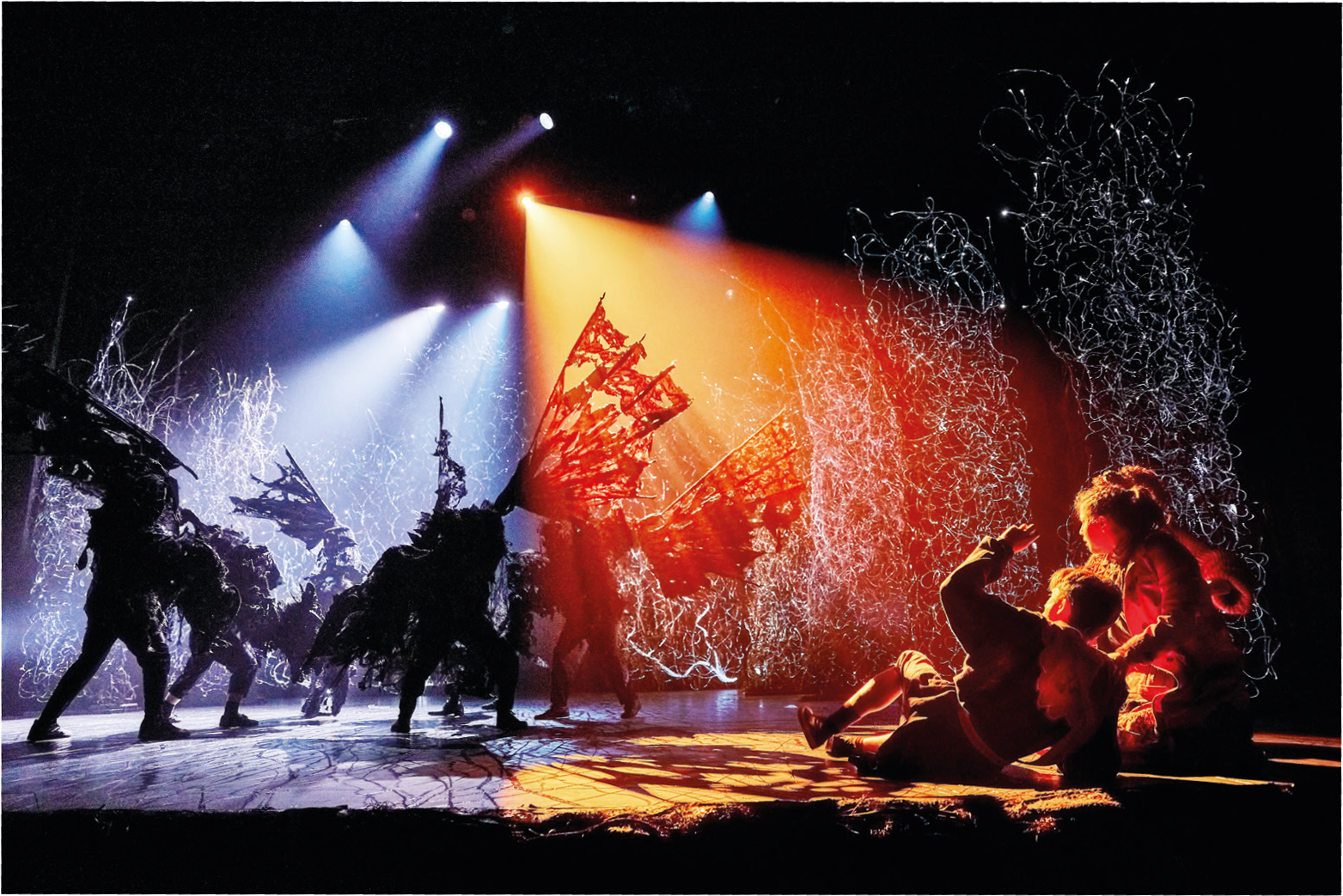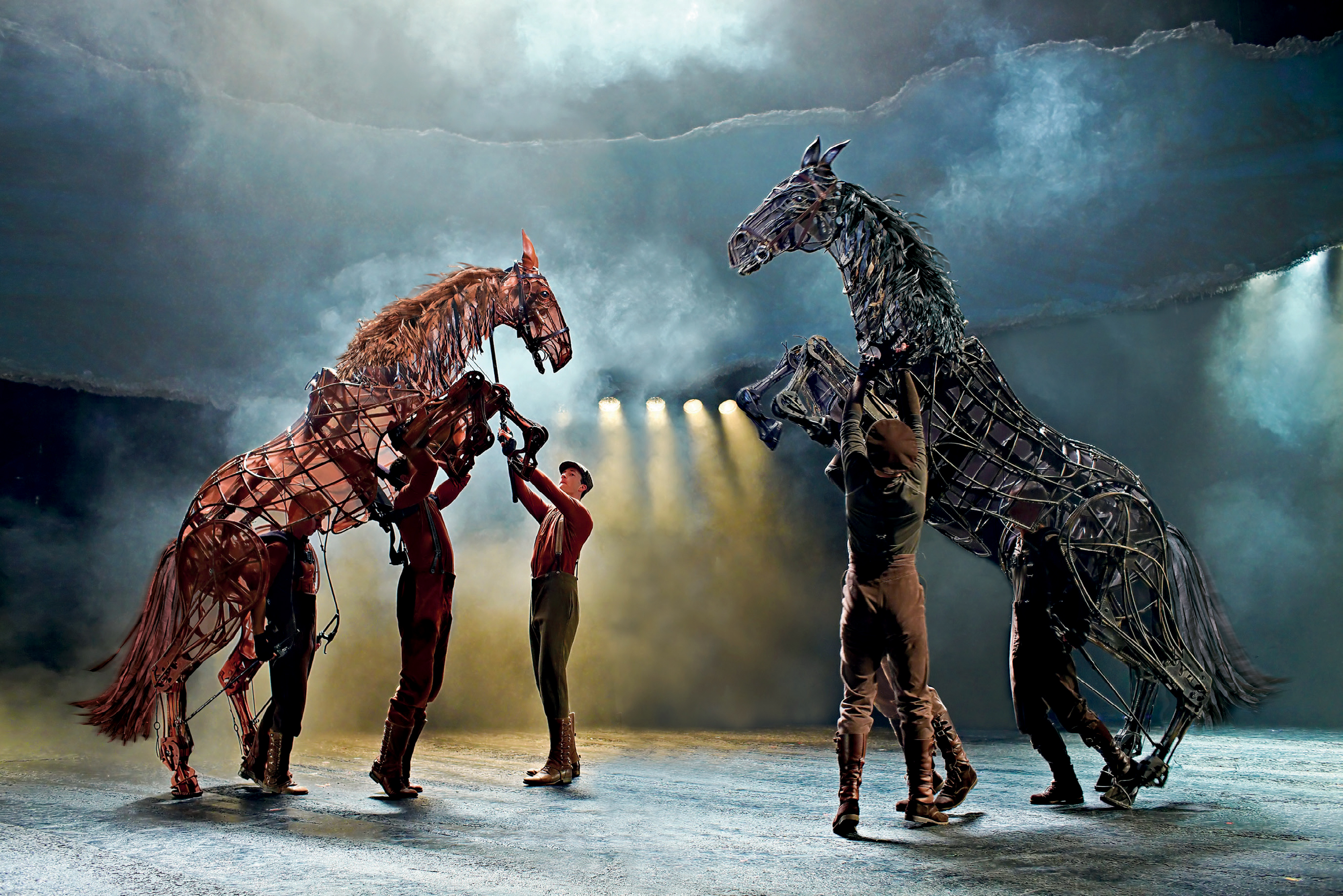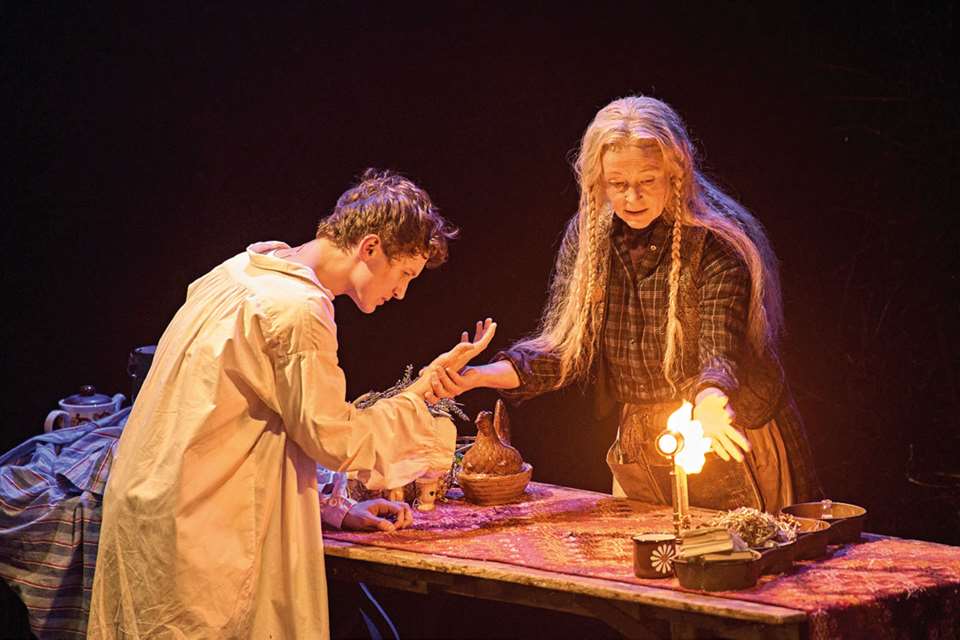Page to stage: How can book adaptations help engage pupils?
John Johnson
Wednesday, February 1, 2023
With novels by Michael Morpurgo, Mark Hadden and Neil Gaiman enjoying stage adaptations in recent years, John Johnson explores this new programming trend and looks into how it can help engage pupils in interdisciplinary learning.

BRINKHOFF-MOEGENBURG
It’s a trend that’s been hitting the silver screen for many years, but it seems that book adaptations are now enjoying success on our theatre stages as well. With productions Michael Morpurgo’s War Horse and Mark Haddon’s The Curious Incident of the Dog in the Night-Time receiving international acclaim over the last few years, the National Theatre has just embarked on another major page-to-stage adaptation. Joel Horwood’s theatrical reimagining of Neil Gaiman’s fantasy novel The Ocean at the End of the Lane will be the National’s largest UK and Ireland tour production since the pandemic broke out in 2020.

© BRINKHOFF-MOEGENBURG
The Ocean at the End of the Lane, 2021
After selling more than 1.5 million copies worldwide, The Ocean at the End of the Lane was announced as the Book of the Year at the 2013 National Book Awards. Neil Gaiman is best known for his graphic novels, whose stories have enjoyed life beyond their pages. The Sandman comic book series was recently released as a Netflix show. Playwright Joel Horwood recalls reading the book in one sitting and being ‘swept away by the book’s action, mysteries and the riddle of reading a story being told by someone who is trying to remember it themselves.’
On-stage possibilities
While adaptations from book to screen are relatively common, Horwood was excited by the the idea that a book such as Ocean could work for the theatre. ‘On stage, multiple realities can (and do) exist at the same time. Audiences can easily follow as an actor switches roles because it is obvious that they were only ever presenting a character in the first place.’ The theatre production relied heavily on a collaborative process between writer Joel Horwood, director Katy Rudd, movement director Stephen Hoggett and the rest of the creative team. It was important that the story was shown to the audience rather than simply retold. ‘In order to deliver this version, we would need to create the monsters, oceans and magic before the audience’s very eyes,’ Horwood explains. ‘I was writing in collaboration with the people on the artistic team, who were responsible for creating the stage language – everything the audience sees and hears.’

© BRINKHOFF MÖGENBURG
War Horse at the New London Theatre
Enjoy and educate
Presenting a novel on stage seems to have resonated with a younger audience in particular, with 1600 school children seeing the show in its first week at the Lowry in Manchester. Presenting literature on stage works twofold, it seems. Those who know Neil Gaiman and have read the book want to see it on stage to enjoy its visual and engaging staging, whereas others who may not have been introduced to the author or story before can enjoy the innovative storytelling played out in live time.
The education team at the National Theatre has produced a wonderful learning resource pack to accompany the show, which takes an in-depth look at how the play was adapted and staged. It’s a particularly useful resource for those studying the input of theatre designers for their Drama or English based courses. The resource pack can be found at oceanonstage.com/learning
Michael Morpurgo’s books have proved to be particular popular with young theatre audieces. Tatty Hennessy’s recent adaptation of The Sleeping Sword follows in the footsteps of Nick Stafford’s rewriting of War Horse, Simon Reade’s Private Peaceful and Anna Ledwich’s The Butterfly Lion. Hennessy’s The Sleeping Sword enjoyed a successful run at the Watermill Theatre in Newbury, before heading out on a school’s tour across Berkshire and Wiltshire. This inclusive production included the use of creative captioning and integrated audio description, offering an exploration of what it is like to live with a visual impairment – just another example of the opportunities that can be explored with theatrical adaptations of popular texts.
Five page-to-stage adaptations to look out for…
Orlando
The Crown star Emma Corrin makes an anticipated return to the West End stage in Orlando at the Garrick Theatre in a production running until February 2023. This adaptation of Virginia Woolf’s seminal feminist novel is written by Neil Bartlett and directed by Michael Grandage.
A Little Life
James Norton stars in a new adaptation of Hanya Yanigahara’s tragic, length tome A Little Life at the Harold Pinter Theatre from March 2023. Visionary director Ivo van Hove (Network, A View from the Bridge) stages the English language premiere of the million-copy bestseller by Hanya Yanagihara, who was shortlisted for the Booker Prize for A Little Life. It’s worth noting that the production is likely to be long and the themes and issues presented will not be suitable for younger students.
To Kill a Mockingbird
Aaron Sorkin’s acclaimed Broadway stage adaptation is currently running at The Gielgud Theatre until April 2023. This story of a defence lawyer in 1930s Alabama has received a new lease of life in a production that has seen various actors portraying the role of Atticus Finch in a tense courtroom-based drama.
Harry Potter and the Cursed Child
Jack Thorne’s adaptation of Harry Potter and the Cursed Child received its world premiere at the Palace Theatre in London in July 2016, and went on to become to one of the most-coveted productions in West End history, winning a record nine Olivier Awards from a record-breaking 11 nominations. The play is presented in two parts, intended to be seen in order on the same day (matinee and evening) or on two consecutive evenings. It is a wonderful example of how collaboration and magic can tell a story in a theatrical way.
The Woman in Black
A terrific exploration of dramatic tension and multi-role playing, The Woman in Black has been haunting theatregoers for over 30 years and will finally end in March 2023 after 13,000 performances in London’s West End. Stephen Mallatratt’s two-man ghost story based on Susan Hill’s novel sees solicitor Arthur Kipps hire an actor to overcome his fears of what he witnessed at Eel Marsh House.


